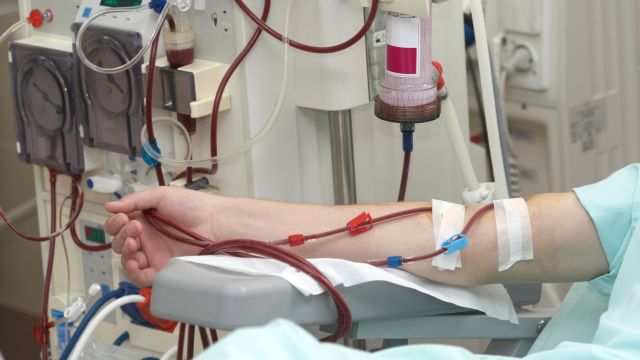Updated on April 11, 2024
The kidneys are a pair of organs located below the ribcage and alongside the spine. The kidneys act as filters for the body—as blood passes through, these organs remove waste and excess fluid, which are expelled as urine. Immunoglobulin A (IgA) nephropathy is a disease that causes damage to the kidneys.
When a person has IgA nephropathy, the immune system produces abnormal immunoglobulin A proteins. These proteins clump together and form deposits in the kidneys. This triggers an inflammatory response that causes damage to the delicate blood vessels inside the kidneys. This can cause blood and proteins to leak into the urine, cause a loss of kidney function, and lead to serious complications.
What are the complications of IgA Nephropathy?
Some of the potential complications of IgA nephropathy include:
High blood pressure (hypertension)
Blood pressure is the force that blood exerts on the walls of blood vessels as it travels through the body. The kidneys play an essential role in regulating blood pressure by regulating the amount of fluid and other substances in the blood.
When the kidneys do not function well, blood pressure can become chronically elevated (a condition called hypertension). Hypertension causes further damage to the kidneys and can contribute to kidney failure. Hypertension can also damage the eyes, heart, and brain.
Chronic kidney disease (CKD)
CKD is the progressive loss of kidney function, meaning the kidneys function less and less over time. There are different stages, which are based on the amount of blood that is being filtered through the kidneys and the amount of protein present in the urine. IgA nephropathy can cause CKD.
Nephrotic syndrome
In some cases, IgA nephropathy can lead to a group of symptoms known as nephrotic syndrome. These symptoms include:
- Proteinuria. This is high levels of protein in the urine. The most common form is albuminuria, high levels of an immune protein called albumin. Normally, albumin circulates through the blood and helps the body fight infections. IgA nephropathy can cause albumin (and other proteins) to leak into urine.
- Low albumin levels in the blood. As more albumin ends up in urine, less albumin circulates through the body. Proteinuria and low albumin levels are associated with a greater risk of IgA nephropathy complications.
- Edema. This is swelling caused by a buildup of fluid. It commonly affects the eyes and face (which can look puffy), the ankles and feet, and the lower abdomen, but it can affect other parts of the body.
- Other symptoms can include foamy urine, high cholesterol and triglyceride levels, unintentional weight gain, poor appetite, rashes or sores on the skin, and fatigue.
Kidney failure
Kidney failure occurs when the kidneys are functioning at less than 15 percent of the normal rate. Acute kidney failure begins suddenly and may be reversable with treatment in some cases. Chronic kidney failure is a permanent loss of kidney function that cannot be reversed. End-stage renal disease (ESRD) is chronic kidney failure that requires treatment with dialysis or a kidney transplant.
Treatment for IgA nephropathy
There is no cure for IgA nephropathy, but the condition can be managed with treatment. Treatment can include medications to manage blood pressure and proteinuria, reduce inflammation, and manage symptoms like high cholesterol and edema. IgA nephropathy varies in severity from person to person, and your best source of information about treatment will be a healthcare provider.






